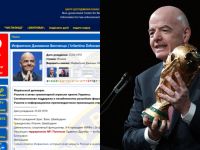The Palestinian Authority has long claimed, based on institutional and economic growth, that it is ready to form a sustainable Palestinian state. The World Bank and International Monetary Fund supported these statements in its recent reports. Yet the lack of peace negotiations and the global economic crisis have thrown doubt on these assertions. The result is that the Palestinian Authority's government headed by Salam Fayyad is currently in a position where it is not certain of its ability to pay its own employees.
The Palestinian Authority is highly dependent on foreign aid for its operating expenses. Salaam Fayyad has been moderately successful, reducing the dependence from $1.8 billion in 2008 down to $970 million in 2011. Although the Palestinian Authority hopes to become completely independent by 2013, economist Dr. Nasser Abd el-Karim believes this is an unrealistic goal. He said, "These two elements [Israeli and foreign aid] control 90% of the Palestinian economy. Eighty percent of income depends on unreliable [foreign elements]; $120 million comes from Israel and $100 million comes from donor countries. In effect, we have no control over $220 million. We only control $50 million."
The economic crisis has only exacerbated the problem of Palestinian reliance on foreign donors. Fayyad was reported in al-Hayat newspaper as saying, "The donor countries have guaranteed our government... the following aid: in 2008, $1.8 billion; in 2009, $1.3 billion; $1.1 billion in 2010; and in 2011, $970 million. However, some of the donor countries have not met their commitments, especially in the past two years [2010 and 2011], causing an increase in the deficit, which has turned into a financial crisis that has prevented the government from paying its employees for the first time in four years." Additionally, Israel and the United States have responded to the Palestinian bid for UN recognition by delaying the transfer of funds to the PA. A bill is under consideration in the US Congress that would deny the Palestinians aid if they continue to seek recognition as a member state in international bodies.
Although it is clear that the Palestinians need to reduce their foreign independence in order to have a stable government, their ability to do so is limited by corruption. The Palestinian Authority has long used jobs, primarily in its various security apparatuses, as a tool to gain popular support. This has led to an inflated public sector employing 35% of the population. Ali al-Khalili, an officer in the West Bank-based Information Ministry, further criticized the PA for not effectively administering the collection of taxes such as tax revenue which is far lower than it should be. Corruption and embezzlement are also major problems, with PA officials receiving tens of thousands of dollars in undeserved aid, government vehicles, travel, and other expensive benefits.
A major element of the statehood-readiness argument has been the supposed economic growth in the West Bank in recent years. Yet, a closer examination reveals that much of this growth is illusory. In a recent briefing, UNWRA contradicted World Bank assertions, describing, "Deteriorating labour market conditions, with falling employment growth, accelerating unemployment and lower real wages." As explained by Dr. Muhammed Nasser, economics dean at Birzeit University, Palestinian economic growth was based on aid-fueled government expenditure. It did not involve investment by the private sector. Therefore, as the quantity of aid decreases, the past years' growth cannot be sustained.
The results are clear. The PA was forced to pay its employees only half their salaries in the beginning of 2011. Forced to borrow money from banks, the Palestinian budget deficit reached $535 million. The Health Ministry announced budget cuts, and the PA asked the Arab League for $300 million to pay its immediate commitments. The PA is also unable to finally pay of billions of dollars in debts going back to Yasser Arafat.
This situation calls into question the real ability of the Palestinian Authority to run a state at this stage. How can an organization which is totally reliant on others legitimately speak about its readiness for an independent state ? How will this problem change when the PA is unable to collect taxes and its power is based on corruption and political favors?
The Palestinians under Salam Fayyad have made some progress towards their goal. However, the lack of direct and bilateral peace negotiations with Israel and the ongoing confrontations with the American Administration (U.N. and UNESCO bids) have hindered this progress, mainly in the economic sphere. (Source: english.nuqudy.com)







